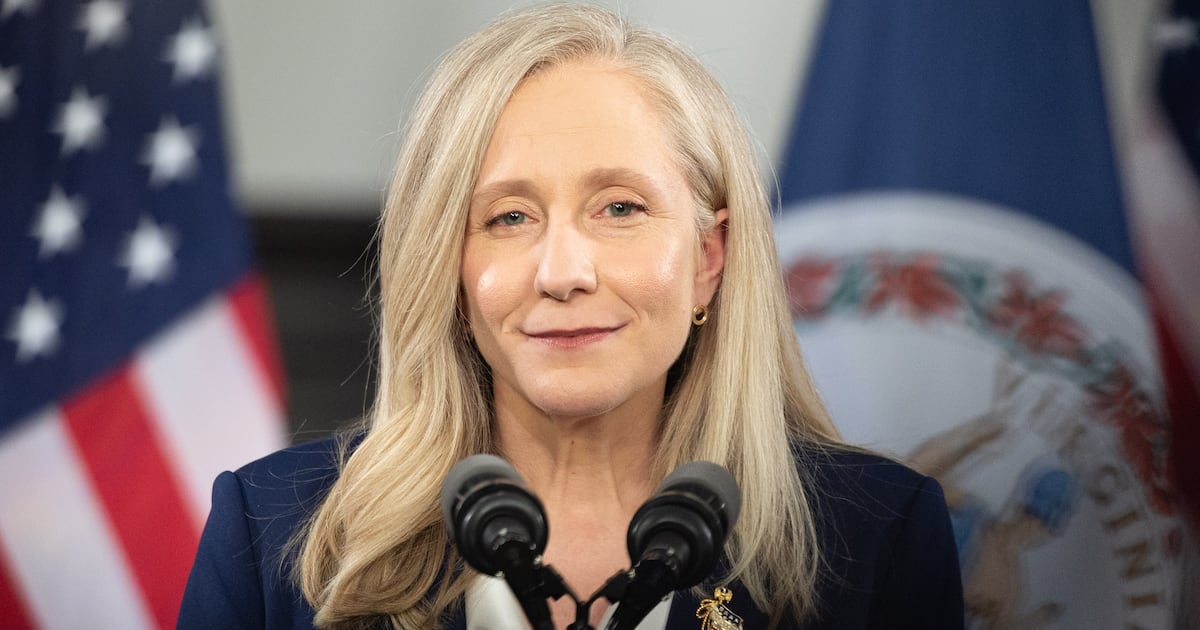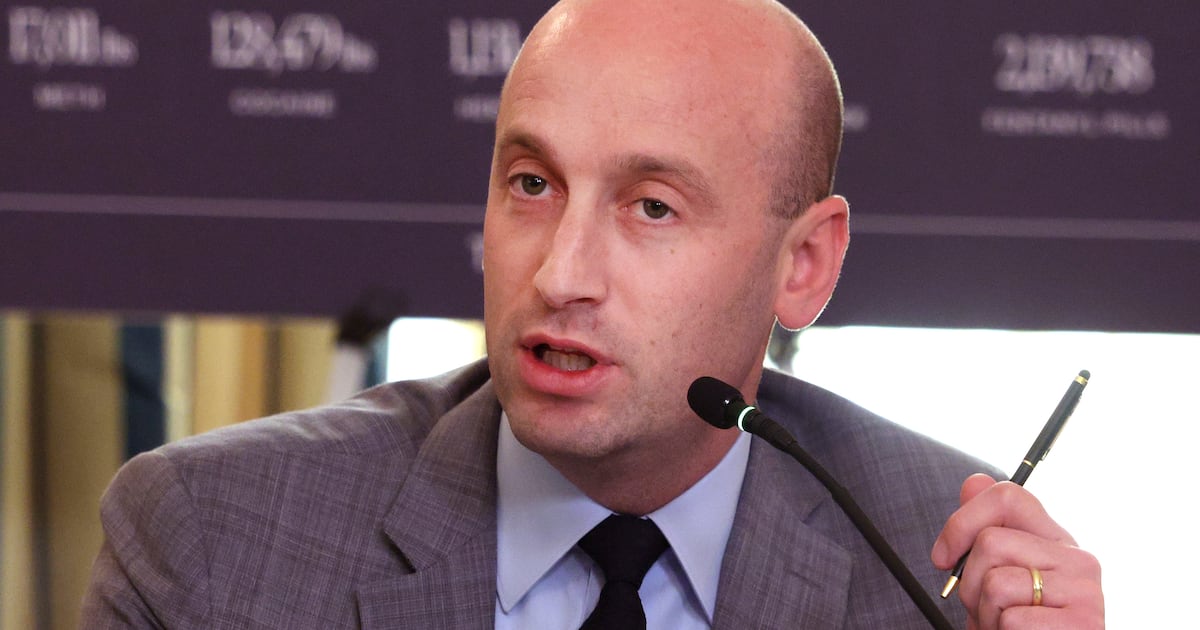“We absolutely believe that the city of New Orleans is a canary in the coal mine for the rest of America, that the things that are happening here, good and bad, reflect what is happening in the rest of the country, and we think that the country will miss a very important learning moment if they don’t see it as the most immediate laboratory for innovation and change in the rest of the country.”
Rita Benson LeBlanc
“Our city is the greatest example of what humanity can do for itself, whether it’s the American dream or the global dream of just doing to others as you want to do. People stopped looking at the media and said, ‘I’m going to go do something, I’m going to go make a difference.’”
Cherise Harrison-Nelson
“You can be poor anywhere in America, but if you’re poor in New Orleans you can still be a king on Sunday, you can be a chief on Mardi Gras day, you can be a queen, and you can be me and weigh 220 pounds and have people tell you all day long ‘you are pretty.’”
Wendell Pierce
“Culture for me has always been a political act. What’s happened in America is we’ve lost the sense of the importance of culture. What thoughts are to the individual, where we reflect on, who we are, who we hope to be, what our shortcomings are, the forum of culture and art is that forum for us as a community, as a whole, for us to reflect on who we are and who we hope to be.”
David Simon
“Culture is not the optimum way to get things done and to build a proper society. People relied on culture because they didn’t have anything else in the bag, culture was the default because it was all that people had. People were betrayed all along the line. All they had left was culture.”
You Have No Idea What Trouble We’re In! and Here’s How to Get Out of It
Glenn Hutchins
“I think one of the big missed opportunities of the last two years has been not creating the cultural understanding that we got in this [recession] together and we can only get out of it together rather than blaming each other and pointing fingers.”
Sheila Bair
“I think short-term spending programs should be focused on infrastructure, not just infrastructure, but educational infrastructure as well.”
Niall Ferguson
“We’ve had an enormous amount of stimulus in the U.S., it’s the largest stimulus in the world, in relative terms, and a huge unprecedented monetary stimulus. What’s been stimulated? Not jobs in Michigan. What’s been stimulated is commodity markets and emerging markets, because the liquidity just leaks out. That’s why a second round of stimulus wouldn’t stimulate in the promised way, it would stimulate the wrong things.”
Glenn Hutchins
“What we’re witnessing now is a contest between democracy plus capitalism on one hand, which is at this moment losing, and autocracy and capitalism on the other hand.”
Peter Orszag
“Look, we were in a much bigger hole than anyone knew at the end of 2008. In that context, despite the popular view to the contrary, the Recovery Act has helped take the edge off what otherwise would have been a very dramatic decline in activity.”
Peter G. Peterson
“One of the things that bothers me is that we get so obsessed with the short-term problem that we use that as a delaying tactic to avoid attacking the long-term problems, which I think are in fact unsustainable.”
Joseph Stiglitz
“If you ask the question where will our long-term debt to GDP ratio be, it will actually be lower if we make that second round of stimulus today. So you don’t have to make the choice between the short run and the long run, you can actually do both.”
Against the Grain: My Money’s On...
Vinod Khosla
“Most significant changes that happen in society will happen from the bottom up, little phenomena that start locally and then multiply exponentially. Once you do that math, the exponential multiplication results in dramatic change.”
Getting it Done: How We Change the Equation
John Kao
“The political philosopher Antonio Gramsci once famously said in the period between the old order and the new order, a number of morbid symptoms were likely to appear. That’s your transition point, that’s our obstacle, that’s the significance of ‘rebooting.’ Rebooting is really about making a transition where you not only have to turn something on, you have to turn something off. You have to make choices, you have to chart a course.”
David Neeleman
“At JetBlue, we’re the first guys who put television on planes. That’s a simple solution. Why doesn’t everyone have that? I don’t know. If you call JetBlue today, everyone’s in their home, 100 percent of the people are working from their homes. Tough job, important job for a company, great for the environment, people are 30 percent more productive.”
Michael Polsky
“In the [energy] marketplace, consumers do not distinguish. Nobody knows where this energy comes from, whether it’s from coal or from clean energy, from wind or solar and so on, so in the energy field we need some direction as a society as to what direction we’re going to go, because really, price does not reflect the cost of particular types of energy.”
Shane Robison
“Information is going to be the most valuable resource we have in the next few decades. Being able to get that information in the right people’s hands will enable them to grow their businesses, improve their economies, improve their education. This is all about changing the paradigm from technology being about productivity and computing primarily to technology being about communication, collaboration, and innovation on not only the technology side but on the business model side. There’s as much innovation happening in business models as there is in technology, and there’s never been as much innovation in technology as there is today.”
Beth Galante
“New Orleans is a testament to the fact that we don’t have to continue to embrace ‘it’s either fear or greed.’ New Orleans is an example of what love can do. Now I know you’re all ‘oh, she’s a tree hugger, she’s the nonprofit lady,’ but I don’t mean love in the squishy, you’re not getting anything done kind of way, I’m using love as in the power of it. Fear is powerful, greed is powerful, but the reason New Orleans is here is because of love.”
Investing in Visionaries: Cheryl Dorsey and Echoing Green
Cheryl Dorsey
“We provide seed capital and support to some of the world’s best social entrepreneurs. It’s important for two reasons. The notion that there’s an institution that provides that risk capital, that takes a chance on you first before anyone else, is provocative, is transformative. The second thing is the belief that young people are on the vanguard of all social change movements, and having a place for young people to go to transform their ideas for social change into reality, it’s an incredible force.”
Johan de Nysschen
“The future is going to utilize a lot of alternative technologies as a way of getting to the end goal, which is dramatically reduced fuel consumption, dramatically reduced emissions, but whichever technology you use is going to involve dramatic weight reduction.”
Diane von Furstenberg
“I never wanted to be a girl, I always wanted to be a woman. I always felt the same thing, I always felt that women should be strong, women should be independent, and women should look like women. And I’ve stuck to that all along, and expressed it in many different ways.”
How to Own the Digital Experience
Michael Mendenhall
“I think what technology has done is democratized all of that content and created an enormous amount of conversation, an enormous amount of engagement, and it’s about how you manage that information in a way that will benefit your company, your product, or your services.”
Sean Parker
“[The recording industry has] gone from a $45 billion yearly industry to roughly a $8 billion a year industry. I’ve dedicated the rest of my career to trying to fix what I broke. The distribution model around music needs to be figured out, and as with all the content industries, which have all been affected in various ways by the move to digital distribution, we need to come up with a novel model.”
Lori Senecal
“Because we have a digital backbone that runs through our agency, we’re able to gather insights more efficiently. We’re able to listen through social media, we’re able to take behavioral data up front, we’re able to use techniques that are much quicker to find out what consumers want, and then we’re able to follow their behavior through the digital space so we can understand where they are in the purchase cycle.”
Lauren Zalaznick
“In any company there are the lean-backs and a lean-forwards. If you’re lucky, that exists in the same person. Because there’s something to be said for recognizing the tension in a new device, new technology, new audience segment, whatever it is.”
Jochen Zeitz
“I just think every business has an amazing opportunity to do good. That’s ultimately what business is about. It’s not just about creating products and creating shareholder value, it’s about doing good for society. The problem is we forgot about it. It was all about the next quarter and maximizing profit. So I’m saying let’s take a step back and look at what we should really do. And I’m saying sustainability is ultimately what it’s all about.”
Barry Diller
“Control is paramount, and if you don’t have the ability to control a situation, eventually, somewhere somehow, some tug is going to happen and the rug is going to get pulled out from under you.”
Up From Zero: Braddock, PA & Its Revolutionary Mayor, John Fetterman
John Fetterman
“I look for the day when the term ‘Rust Belt’ has a positive connotation, it’s synonymous with social entrepreneurship.”
After the Drug Cartels: Reviving Medellin
Sergio Fajardo
“You have to give opportunities. We live in a very unequal society. I come from a very privileged sector. I could go to the University of Wisconsin in Madison to study mathematical logic—that was my dream—but very few could do it. Giving our talented people the opportunity to grow up, little by little we’re going to defeat narcotraffic and violence.”
Counterinsurgency & The Gangs of LA: One Woman’s Dangerous Mission
Connie Rice
“Our gang problem with 100,000 gang members and 1,000 gangs in L.A. County is so big that it’s an epidemic. World Health Organization, we did a report with them, and they said, ‘Connie, forget civil rights, forget law enforcement, you can’t shoot your way out of it you can’t sue your way out of it, you have to take the public health framework.’”
Lessons of Leadership
General Stanley McChrystal (USA-Ret.)
“If you look at plywood, it’s really pieces of very mid-grade lumber shaved very thin and then glued together. When they’re alone, you can take them and break them with your hands. When you glue them together, they have extraordinary strength. I think that’s like organizations. I think we take ordinary people and we pull them together into teams, and if leaders are the glue, then I think we’ve created the equivalent of plywood. We’ve created something much stronger than individuals.”
General McChrystal (USA-Ret.) Leadership Lab: Leading Against the Tide
Niall Ferguson, Laurence A. Tisch Professor of History, Harvard University and William Ziegler Professor, Harvard Business School
“To be a leader means sometimes to become deeply unpopular because of what you believe in. I think the great leaders are the ones who lead in the face of unpopularity, even when the crowd is baying for leadership.”
Theodore Forstmann, Chairman and CEO, IMG
“I think the greatest impediment to leadership is conventional wisdom. Most people think that success is doing kind of what everybody else does, and doing it better… If you’re just trying to do what everybody else does and do it better, which is where the great preponderance of people live, you’re not a real leader.”
David Neeleman, Chairman and CEO, Azul Airlines
“Sometimes it doesn’t always work out. Now, there’s 2,500 Brazilians who have jobs because I got fired, and there’s 4 million Brazilians that will travel today, a lot of them that wouldn’t have traveled otherwise, because I got fired, so they’re really happy with the fact that I got fired at JetBlue. But you have to do always what you think is right. As long as you do what’s right, things will work out.” “It happens, David,” responded McChrystal, with a chuckle.
Michelle Rhee, Chancellor, District of Columbia Public Schools:
“In public education, which is probably the most conflict-averse sector that you can possibly imagine, it is so necessary for us to push this agenda of not being liked, and not getting along, and actually fighting it out a little bit, because in my mind, for far too long we have been able to turn a blind eye to the injustices that are happening to kids in classrooms every day in the name of harmony amongst adults.”
A New Generation of Innovators
Kara Bobroff, Founder, Native American Community Academy
“I’d like to share with you a core cultural value that we abide to at our school: wakan yeja, and basically, that translates into that all children are sacred beings. If we all embrace this notion that children are sacred, and treat them as such, our communities will thrive.”
Rafiq Kalam Id-Din, Founder, Teaching Firms of America
“Without great teachers, a great education is unattainable; and until we solve this human capital problem, and it is THE problem, and the teaching firm charter school will do it, we will continue to fail to fulfill the promise that in America anything is possible.”
Ashni Mohnot, Founder, Enzi
“Last fall, Warren Buffett made an offer to Columbia business students: ‘I would pay a hundred thousand dollars for 10 percent of the future earnings of any of you. You’re a million dollar asset right now.’ Enzi makes it possible to invest in these million dollar assets right now: our students.”
Jennifer Schnidman, Founder and CEO, Drop the Chalk
“I’m here to tell you that 50 years ago, intuition was OK because it’s all teachers had. But in this age of information technology, intuition is no longer good enough. We have computers that can crunch enormous data sets of information and turn that information into actionable next steps for teachers, in real time, so that tomorrow, they’re making better decisions for their students.”
Joel Klein, Chancellor, New York City Schools
“We got to change teaching from a trade union—these are not people on an assembly line—into a profession where excellence counts, accountability counts, and the great ones, the heroes in American society, are our great teachers.”
Paul Pastorek, State Superintendent of Education, Louisiana
“Katrina gave us an incredible opportunity to wipe away the incredibly horrible system that masqueraded for public education in our city… What we have to have is a system that breaks the bureaucracy, and what Louisiana and New Orleans has done is we’ve created the most competitive school environment. We have 70 percent of our schools in the city of New Orleans that are charter schools. They compete for the privilege of educating children in our city, and we are rapidly converting those that are not charter schools to charter schools.”
Michelle Rhee, Chancellor, District of Columbia Public Schools
“Who wants to take on pension reform? You’re going to take all the arrows immediately that come with that, and then the benefits don’t come until you’re out of office. It’s not a proposition that we can expect individual politicians to take on, that’s why we need a national agenda for education reform, and we have to be pushing that national agenda aggressively and give these politicians some cover.”
James Carville
“If you’re a Democrat, the hurricane is coming. It’s not going to veer off course to the east or west.”
Harold Ford, Jr.
“A lot of the things they’ve done are going to pay off in the long run. It was the right thing to do, health care.”
Leslie Sanchez
“On our site we’re hearing it’s more of a category five, but on our site it’s a positive thing, a rising tide, lift all boats.”
Howard Kurtz
“I know the people in the White House are frustrated. The press deserves some blame in the sense that—and we’re talking about bloggers and cable hosts who shout at each other and people on Twitter, so it’s a pretty large beast, a very important word at this summit—but I do think there’s a sense that we haven’t give the president enough credit on some things."
The View from India’s Innovation Czar
Sam Pitroda
“In 1980, I had sold a company I had in Chicago to Rockwell International and I decided to visit India after having made a little bit of money. I had never been to Delhi, went to Delhi and tried to call my wife from a five-star hotel and couldn’t make a call to Chicago. So little bit of arrogance and a lot of ignorance said, ‘I’m going to fix this damn thing.’”
India & China: The Advancing Giants
Robert Hormats
“This trip is special in a number of ways. It’s the longest period of time President Obama has been outside the United States. Second, if you look at the path of this trip there’s an important signal here.”
Yasheng Huang
“GDP growth has been very fast. But if you look at the household income growth, personal income, that growth has been extremely uneven in the last 30 years.”
Dambisa Moyo
“If you look at the quality and quantity around capital, labor, and total productivity, it’s very clearly a story that’s leading toward the emerging world.”
Tarun Tejpal
“Everyone here obsesses over the American dream. In India, what we talk about is the idea of India. The idea of India is a kind of obsession with the idea of equality, liberty, compassion.”
Jane Chen
“Over the next couple of years we hope to save the lives of over 100,000 babies and to prevent illness of over a million babies, but the long-term social impact is actually a reduction in population growth.”
David del Ser
“We’re bringing the latest technology that the Silicon Valley is inventing to the bottom of the pyramid, the poorest people on the planet.”
Mark Hanis
“My big idea is to abolish the world’s word crime: genocide. We do this by creating the first permanent anti-genocide constituency.”
My Passion, My Purpose: How I Started My Company
Robin Chase
“It was the epiphany of the moment. It was in the fall of 1999 and everyone was talking about wireless and I was a prime user and so I joked that there really was a light bulb that went off in my head and I said this is what the Internet is made for—sharing a scarce resource—and what wireless data transmission is for.”
Cheryl Dorsey
“We’ve been in the business a long time and I think we now have a pretty good sense of who is going to succeed and how they’re going to fare through their social change journey.”
Marc Koska
“The manufacturing of a better product is obviously beneficial, and we’re used to progress in every 18 months, big steps forward in computers, mobile phones, health care, etc., but the key was really to get information all the way down to recipients of bad injections. The sad fact is that each syringe in the developing world is used four times each and results in 1.3 million deaths a year, which is more than malaria.”






